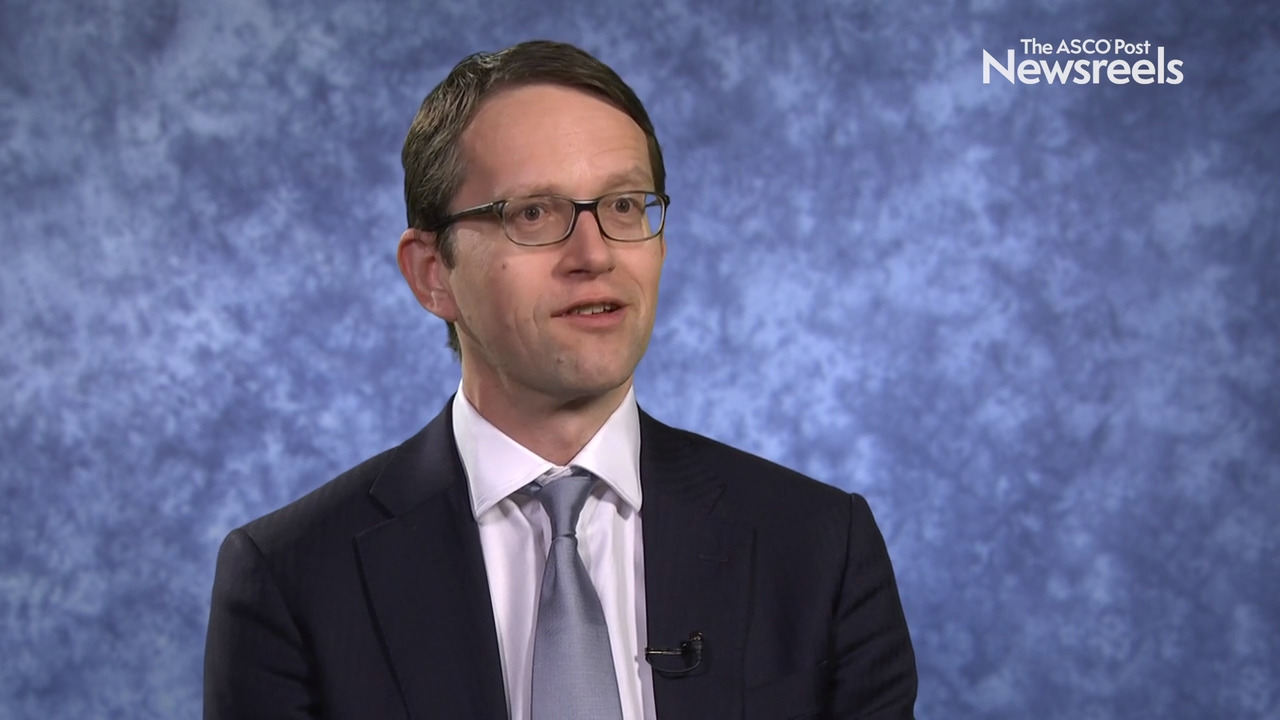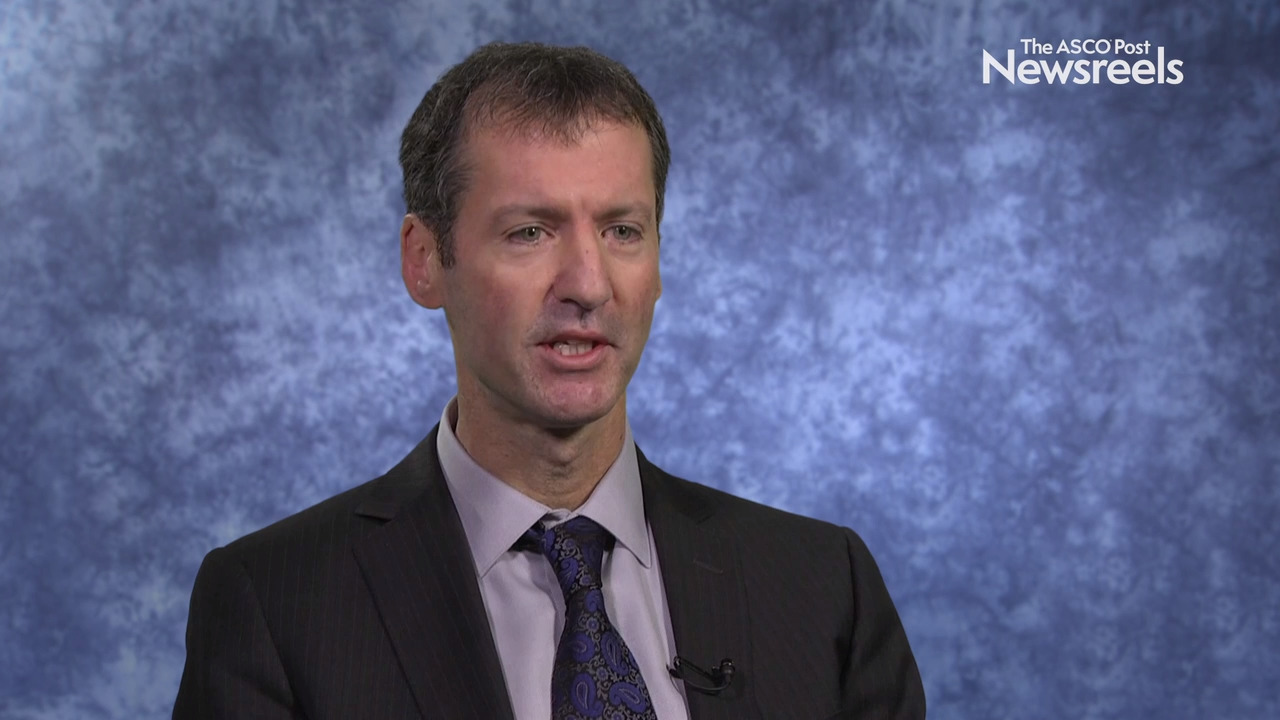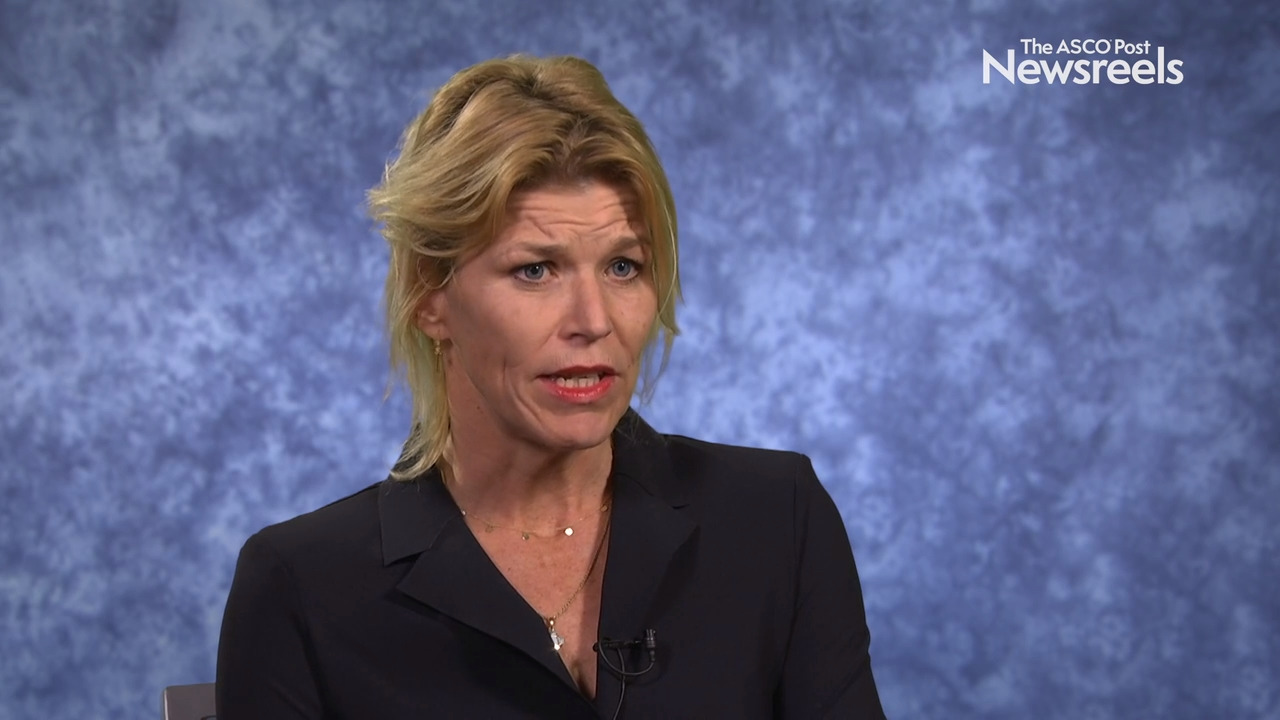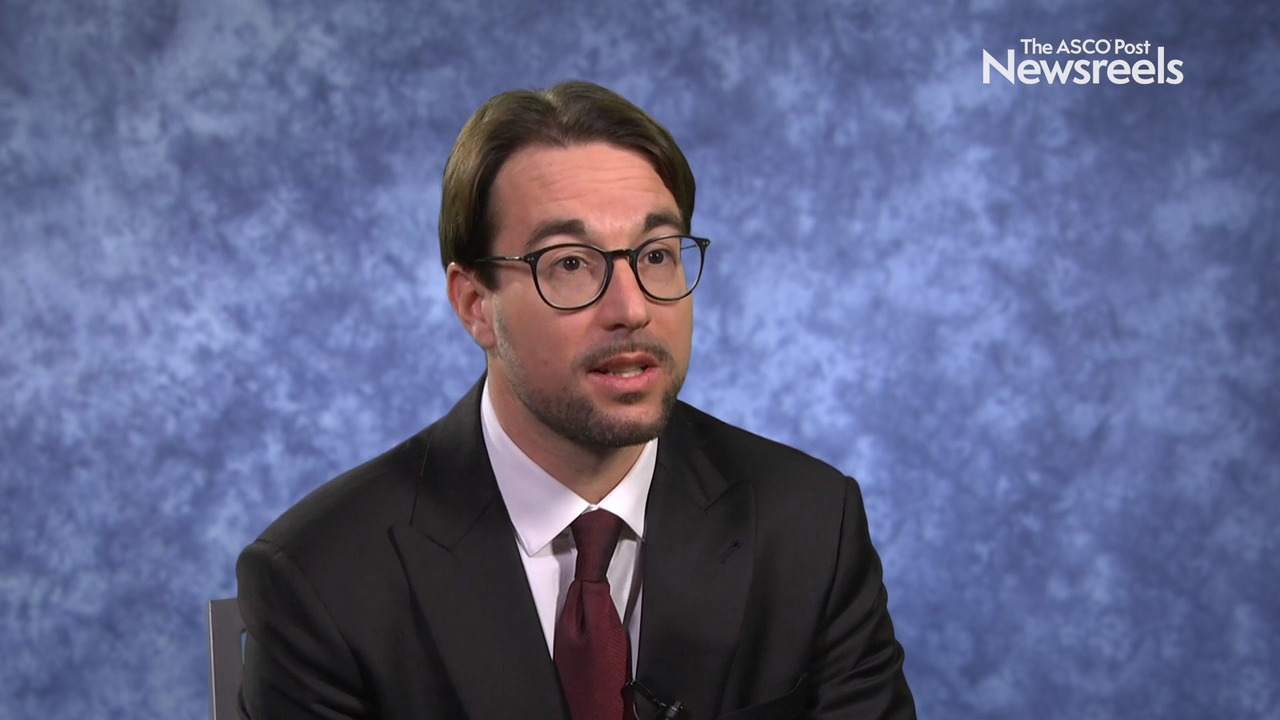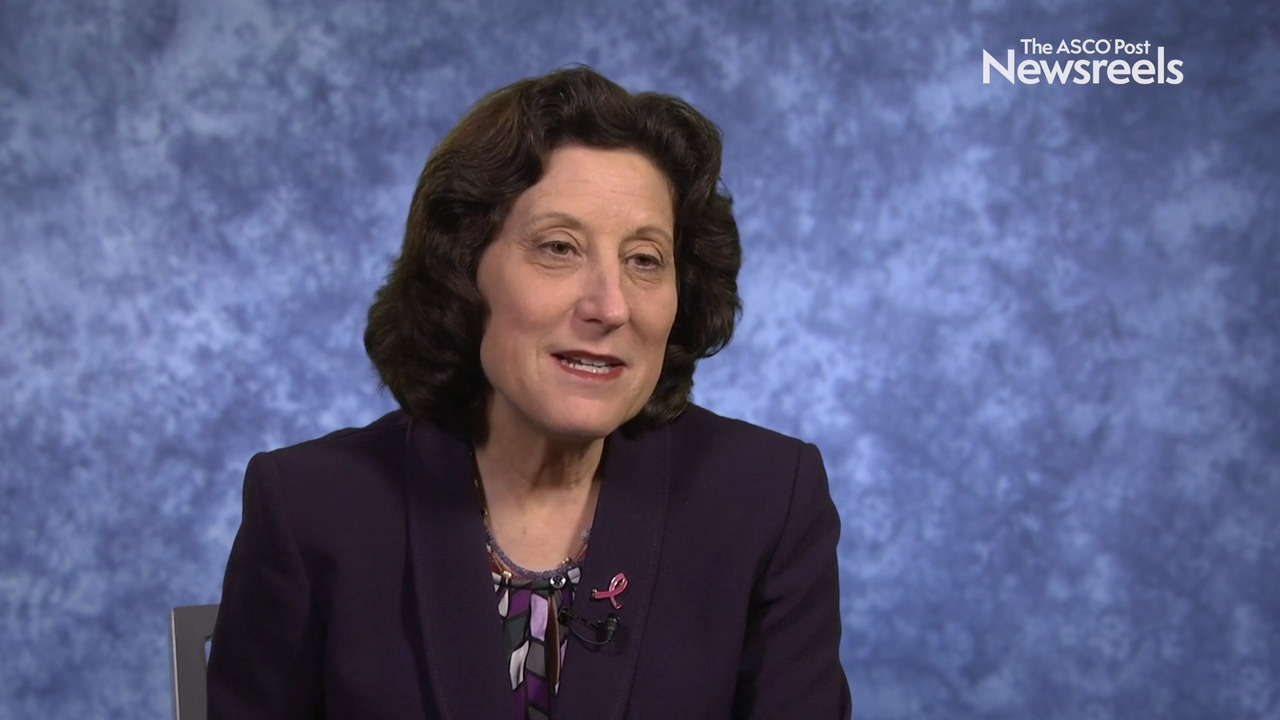Jack Cuzick, PhD, on the International Breast Cancer Intervention Study II: 10-Year Results
2019 San Antonio Breast Cancer Symposium
Jack Cuzick, PhD, of Queen Mary University of London, discusses the substantially greater benefits of anastrozole as compared with tamoxifen in terms of preventing breast cancer, with no increase in fractures or other reported serious side effects (Abstract GS4-04).
Nicholas C. Turner, MD, PhD, of The Royal Marsden NHS Foundation Trust, discusses findings from the plasmaMATCH trial, which showed that circulating tumor DNA testing offers accurate tumor genotyping to identify patients with rare HER2 and AKT1 mutations and may enable matching them with targeted treatments (Abstract GS3-06).
Ian E. Krop, MD, PhD, of Dana-Farber Cancer Institute, discusses phase II trial findings on trastuzumab deruxtecan, a HER2-targeting antibody-drug conjugate, in patients with HER2-positive metastatic breast cancer who were previously treated with trastuzumab emtansine (Abstract GS1-03).
Marie-Jeanne T.F.D. Vrancken Peeters, MD, PhD, of the Netherlands Cancer Institute, discusses an interim study analysis showing that ultrasound-guided core biopsies of the breast in patients with excellent response on MRI after neoadjuvant systemic therapy may not be accurate enough to safely select patients with pathologic complete response for omission of surgery (Abstract GS5-06).
Icro Meattini, MD, of the University of Florence, discusses study findings that showed the less-invasive partial-breast irradiation using intensity-modulated radiotherapy after surgery may be an acceptable choice for patients with early breast cancer, as it is cost-effective, safe, and efficacious when compared with whole-breast irradiation (Abstract GS4-06).
Hope S. Rugo, MD, of the University of California San Francisco Comprehensive Cancer Center, discusses trial data on margetuximab plus chemotherapy, which improved progression-free survival in patients with previously treated HER2-positive metastatic breast cancer when compared with trastuzumab plus chemotherapy. Maturing data comparing overall survival also provides new insights (Abstract GS1-02).
